How is it possible that a single word has sparked so much hope, controversy, and transformation throughout history?
From the ancient prophets of Israel to the pages of the New Testament, passing through the beliefs of Judaism, Islam and Christianity, the term "Messiah" has captured the attention of millions of people for centuries.
But what does this word really mean? Who is the Messiah, and why is his figure still central to today's faith and culture?
In this article you will discover:
- The true meaning of “Messiah” in Hebrew
- His role in the Old Testament prophecies
- How it is understood in different religions
- And why recognizing the Messiah can change your life
Get ready to explore the story of the greatest promise ever made… and how it was fulfilled in one person.
What does the word “Messiah” mean?
The word "Messiah" literally means “anointed”In the biblical context, it refers to a person set apart and consecrated by God to fulfill a special mission, whether as king, priest, or prophet.
Throughout Scripture, the term focuses on a central, future figure: God's final messenger who will bring redemption, justice and restoration.
For Christians, that Messiah is Christ, the fulfillment of all the prophecies and promises of the Old Testament. But even outside of Christianity, the concept of the “Messiah” has had a profound impact on culture, history, and theology.
Etymological origin of the term in Hebrew (Mashiach)
The word “Messiah” comes from Hebrew Mashiach (מָשִׁיחַ), which means anointed with oilIn the Old Testament, the following were anointed:
- Kings (like David – 1 Samuel 16:13)
- Priests (like Aaron – Exodus 29:7)
- Prophets (like Elisha – 1 Kings 19:16)
This act of anointing symbolized that the person was empowered by God for a specific task, under the power of the Holy Spirit. Over time, the term Mashiach It was taking on a broader and more prophetic meaning, pointing towards a Future savior promised by God.
Difference between “Messiah” and “Christ”
Although many use them as synonyms, there is an important difference in language and context:
- "Messiah" is the Hebrew form (Mashiach).
- "Christ" is the Greek form (Christos), which also means “anointed.”
In the New Testament, when it says Christ, a surname is not mentioned, but a qualification: Jesus, the Christ = Jesus, the Messiah.
Therefore, Christ and Messiah are linguistic equivalents, and both refer to the same concept: God's Anointed, sent to save, restore, and rule.
The context of the Messiah in the Old Testament
The concept of an anointed one by God
In the Old Testament, the act of anoint with oil It was a visible sign that someone had been chosen and set apart by God to fulfill a sacred functionThis anointing was not merely symbolic, but represented the investiture of the Spirit of God upon the person (1 Samuel 16:13).
The anointed ones par excellence were:
- Kings (like Saul, David and Solomon)
- Priests (like Aaron and his descendants)
- Prophets (although they were not always anointed with oil, they were consecrated by the Spirit)
This pattern prepared the people of Israel to expect a Perfect Anointed, which would bring together all these functions.
Messiah as a royal, priestly and prophetic figure
Throughout the Old Testament, the figure of the “anointed one” becomes triple in its dimension:
- King: a just and eternal ruler (2 Samuel 7:12–16).
- Priest: mediator between God and his people (Zechariah 6:13).
- Prophet: faithful spokesman of divine will (Deuteronomy 18:15).
The Messiah would therefore be, the envoy who would reign like David, intercede like Aaron, and speak with authority like MosesThis expectation grew strongly in Jewish tradition, especially in times of oppression or spiritual deviation.
Messianic hope in times of crisis in Israel
During periods of exile, foreign domination and internal corruption, the people of Israel longed for the emergence of a divine liberatorThe figure of the Messiah was taking on a more eschatological character: someone who would come to restore the kingdom, cleanse the temple, and establish justice forever.
Examples of this hope include:
- The time of the exile in Babylon (6th century BC)
- Greek and Roman domination in the intertestamental period
- The Psalms and prophets that nourished faith in the future promise
This expectation became the national faith center of many Israelites.
Messianic promises in the Law, the Prophets and the Psalms
The Messiah is not a late invention of Christianity, but a figure prophesied and prefigured in all sections of the Old Testament:
- The Law (Torah)Genesis 3:15 speaks of the descendant who will crush the serpent's head.
- The Prophets: Isaiah, Jeremiah, Ezekiel, Daniel and others announce the Servant of God, the coming King and the Son of Man.
- The Psalms: They sing of the “Son” who will be enthroned by God (Psalm 2), and of the eternal priest according to the order of Melchizedek (Psalm 110).
These promises converge in the figure of the Messiah, feeding centuries of hope and preparation for his arrival.
Key Messianic Prophecies in the Old Testament
Genesis 3:15 – The promise of redemption
In what is known as the protoevangelium, God declares to the serpent:
“I will put enmity between you and the woman, between your offspring and hers; he will bruise your head, and you will bruise his heel.”
(Genesis 3:15)
This verse points to a descendant of the woman who will overcome evil. For many Christian interpreters, this is the first prophecy about the Messiah, who would defeat Satan through his death and resurrection.
Deuteronomy 18:15 – A prophet like Moses
Moses prophesies:
“The Lord your God will raise up for you a Prophet like me from among you, from your brothers; you will listen to him.”
This passage establishes the expectation of a superior prophet, who would speak with divine authority. Jesus fulfills this role not only as a spokesman, but as the mediator of the new covenant, superior to Moses (see Hebrews 3:1–6).
Psalm 2 and Psalm 110 – The Son and the Eternal Priest
- Psalm 2 presents the Messiah as the “Son” enthroned by God, to whom the kings of the earth must surrender:
“You are my son; today I have begotten you.” (Psalm 2:7)
- Psalm 110 describes an eternal non-Levitical priesthood:
“You are a priest forever according to the order of Melchizedek.”
Both psalms reflect the royal and spiritual authority of the Messiah, recognized as eternal King and Priest by Christian tradition.
Isaiah 7:14 and 9:6 – The Birth of the Messiah
- Isaiah 7:14:
“Behold, a virgin shall conceive, and bear a son, and shall call his name Immanuel.”
- Isaiah 9:6:
“For to us a child is born, to us a son is given… and his name will be called Wonderful, Counselor, Mighty God, Everlasting Father, Prince of Peace.”
These prophecies announce the supernatural birth and the divine identity of the Messiah, fulfilled in the birth of Jesus according to the gospels of Matthew and Luke.
Isaiah 53 – The Suffering Servant
One of the most striking passages in the Old Testament, Isaiah 53 describes a rejected servant, wounded and dead for the sins of the people:
“But he was wounded for our transgressions, he was bruised for our iniquities…”
“By his wounds we are healed.”
This chapter has been central in Christian theology, as it shows the Messiah as Redeemer through suffering.
Micah 5:2 – The Messiah will be born in Bethlehem
“But you, Bethlehem Ephrathah, though you are too small to be among the clans of Judah, out of you will come for me one who will be ruler in Israel…”
(Micah 5:2)
Although insignificant in the eyes of the world, Bethlehem would be the place chosen for the birth of the eternal King, as confirmed in Matthew 2:1–6 with the birth of Jesus.
Zechariah 9:9 – The just and humble King
“Rejoice greatly, O daughter of Zion… behold, your King is coming to you; just and having salvation, gentle and riding on a donkey.”
(Zechariah 9:9)
This prophecy was fulfilled literally when Jesus entered Jerusalem on a donkey (Matthew 21:4–5), proclaiming his kingship not with violence, but with gentleness and justice.
These prophecies form a consistent network of Messianic promises fulfilled in Jesus, confirming his identity as the Messiah expected and announced since the first books of the Bible.
The meaning of Messiah in Judaism
Traditional interpretations of the Jewish Messiah
In Judaism, the Messiah (Mashiach) It is understood as a human being anointed by God, an earthly leader descended from King David who will come in the future. This Messiah is not considered divine, but a just man, wise and powerful who will restore the people of Israel and bring peace to the world.
Traditionally, it is expected that:
- Rebuild the Temple in Jerusalem
- Gather all the Jews scattered in exile
- Restore law and order in Israel
- Bring an era of universal peace
This concept has evolved within different currents of Judaism, but maintains a strong connection with national identity and earthly justice.
National, political and eschatological hope
For many generations of Jews, especially under foreign domination, the Messiah became symbol of political liberation and national restoration.
It was expected to be:
- A warrior king like David
- Unifier of the twelve tribes of Israel
- Destroyer of the enemies of God
- Establisher of a messianic era of justice, peace and prosperity
This longing acquired a nuance scatological, related to the end of time, the final judgment and universal restoration under the rule of the God of Israel.
Messiah ben David vs. Messiah ben Yosef
In rabbinic literature, two messianic figures emerged:
- Messiah ben David: the victorious king who rules eternally from Jerusalem.
- Messiah ben Yosef: the suffering servant who dies in battle preparing the way for the son David.
Some Jews believe that Messiah ben Yosef will come first and will die as a redeemer of the people, followed by the Messiah ben David, who will bring final redemption.
This idea offers an interesting bridge to the Christian understanding of Jesus, who suffers, dies and returns as a glorious King.
Reasons why many Jews did not accept Jesus as the Messiah
Although Jesus fulfilled many biblical prophecies, Many Jews of his time and later did not accept him as the Messiah. for reasons such as:
- He did not restore the throne of David nor did he free Israel from Roman rule
- He died on the cross, something incompatible with the idea of a triumphant Messiah
- He did not rebuild the Temple or bring world peace.
- The Messiah was not to be worshipped as God, according to rabbinic tradition
For Judaism, the Messiah has not yet come, and await his arrival as part of the eschatological fulfillment.
The fulfillment of the concept of Messiah in Jesus
Jesus as the Christ anointed by the Spirit
At Jesus' baptism, the Holy Spirit descended upon Him (Matthew 3:16), publicly confirming that He was the Anointed of God, the Christ.
Jesus himself declared in the synagogue of Nazareth:
“The Spirit of the Lord is upon me, because he has anointed me…” (Luke 4:18, quoting Isaiah 61)
This divine anointing was not ritual, but spiritual and eternal, equipping you to heal, teach, deliver, and redeem.
How Jesus fulfilled the messianic prophecies
Throughout his life, Jesus fulfilled dozens of Old Testament prophecies, including:
- Birth in Bethlehem (Micah 5:2)
- Davidic descendants (Isaiah 11:1)
- Triumphal Entry into Jerusalem (Zechariah 9:9)
- Rejection and Suffering (Isaiah 53)
- Death with the wicked, burial with the rich (Isaiah 53:9)
- Early Resurrection (Psalm 16:10)
These signs confirmed to many that Jesus He was not a false messiah, but the living fulfillment of the divine plan.
The triumphal entry and its prophetic significance
Jesus entered Jerusalem riding on a donkey, literally fulfilling the prophecy of Zechariah 9:9.
The people acclaimed him with clapping and shouts of:
“Hosanna to the Son of David!” (Matthew 21:9)
This act marked the public recognition of Jesus as the Messiah, although his reign was not political, but spiritual. The contrast between his humility and his warlike expectations disappointed many.
The cross and resurrection as the climax of messianism
For Christianity, The cross was not a defeat, but the center of the messianic mission.
Jesus bore the sin of the world (Isaiah 53:5–6) and, upon rising, conquered death, inaugurating a new covenant of redemption.
- His death was the perfect atoning sacrifice
- His resurrection was divine confirmation of his identity
- His ascension marked the beginning of his heavenly reign
Jesus redefines messianism: from a political throne to an eternal Kingdom
Jesus did not come to take an earthly throne, but to establish the Kingdom of God in hearts.
He said clearly:
“My kingdom is not of this world” (John 18:36)
He redefined the Messiah not as a military conqueror, but as:
- King of justice and peace
- Obedient and faithful servant
- Slaughtered Lamb and Risen Lion
- Eternal Lord over heaven and earth
So, Jesus fulfills, transforms and elevates all the messianic expectations of the Scriptures.
The title “Messiah” in the New Testament
Use of the term “Christ” and its equivalence with “Messiah”
In the New Testament, the word "Christ" appears more than 500 times and is the Greek form of Mashiach (Messiah).
When it is said "Christ", it is being claimed that Jesus is the long-awaited Messiah, the Anointed One of God.
The gospels make it clear that this title it was not a surname, but a messianic affirmationFor example, John 1:41 says:
“We have found the Messiah (which translated is, the Christ).”
The early church recognized that In Jesus everything that had been prophesied about the Messiah was fulfilled..
Key Confessions: Peter, Martha, and the Roman Centurion
Throughout the New Testament, we find decisive statements of faith in Jesus as the Messiah:
- Peter:
“You are the Christ, the Son of the living God.” (Matthew 16:16)
- Marten:
“Yes, Lord; I have believed that you are the Christ, the Son of God…” (John 11:27)
- Roman centurion (after the crucifixion):
“Truly this man was the Son of God.” (Mark 15:39)
These confessions show that Recognizing Jesus as the Messiah transformed the heart and spiritual vision of the person who declared it.
Messianic testimonies in the Gospels and Pauline letters
The gospels not only narrate the deeds of Jesus, but they constantly testify that He is the Christ:
- John 20:31 summarizes its purpose:
“…so that you may believe that Jesus is the Christ, the Son of God, and that by believing you may have life in his name.”
- Paul, in his letters, identifies Jesus as the Risen Christ, Lord of all (Romans 1:4; Philippians 2:11).
For the apostles, To proclaim Christ was to proclaim the Messiah who brought salvation through his death and resurrection.
The Messiah glorified in Revelation
The book of Revelation presents the Messiah not as a suffering servant, but as Glorious and victorious King:
- It is called “the Lion of the tribe of Judah” (Revelation 5:5)
- He has on his clothes the name “King of kings and Lord of lords” (Revelation 19:16)
- He is worshipped as the slain Lamb and exalted over all creation (Revelation 5:12–13)
This portrait culminates the vision of the Messiah: He who came in humility now reigns in glory and will come again to judge and restore.
Theological implications of the Christian Messiah
Lordship of Christ over all things
Recognizing Jesus as the Messiah implies submit to his total authorityHe is not only a personal Savior, but Universal Lord:
“All authority has been given to me in heaven and on earth.” (Matthew 28:18)
This lordship includes:
- The dominion over the church
- Authority over human kingdoms
- Sovereignty over the history and destiny of humanity
Mediator between God and men
As Messiah, Jesus is the only one perfect mediator between a holy God and fallen humanity:
“For there is one God, and one mediator between God and men, the man Christ Jesus.” (1 Timothy 2:5)
He reconciles the sinner with God through:
- His life without sin
- His expiatory death
- His glorious resurrection
Universal Savior, not just of Israel
Although the Messiah was promised to Israel, his work has global reach.
Jesus is called:
“A light to lighten the Gentiles, and the glory of your people Israel.” (Luke 2:32)
As universal Savior, he offers:
- Forgiveness to all who believe
- Inclusion in God's family
- Hope for every tongue, tribe and nation
The Messiah as eschatological judge and coming King
The Messiah will return not only as Savior, but as Just Judge and Eternal King:
“He will come in glory with his angels, and then he will reward each person according to his works.” (Matthew 16:27)
This implies:
- A final and definitive judgment
- The total defeat of evil
- The establishment of the eternal Kingdom of justice, peace and glory
The Messiah who came as a Lamb will return as a Lion, and his reign will have no end.
Your identity has eternal consequences for every human being.
The Messiah in other religions
The Messiah in Islam: Jesus as a prophet and eschatological figure
In Islam, the term “Messiah” (al-Masih) applies to Isa (Jesus), considered one of the most important prophetsThe Quran states that:
- Isa was born of a virgin (Maryam)
- Was the Messiah sent to the children of Israel
- He did not die on the cross, but was taken to heaven by God
- He will return at the end of time to defeat the false Messiah (el-Dajjal) and establish justice
However, Islam does not recognize Jesus as the Son of God or as Savior, and sees it as an obedient servant of Allah, not as a universal redeemer.
The Messiah in Judaism Today: Future Hope
For contemporary Judaism, the Messiah has not yet comeThe messianic hope is still alive, based on the prophecies of the Tanakh (Old Testament), awaiting:
- A leader descended from David
- Restoration of Israel as a nation
- Lasting world peace
- Reconstruction of the Temple in Jerusalem
This hope does not focus on the divinity of the Messiah, but in its role as just human king and restorer of divine order.
Pseudomessiahs and messianic figures in history
Throughout history many have emerged pseudo-messiahs or leaders who claimed to be the Messiah:
- Simon bar Kochba (2nd century): Jewish leader who was hailed as Messiah in a revolt against Rome.
- Shabbetai Tzvi (17th century): Jewish Kabbalist who attracted thousands of followers before converting to Islam.
- Modern leaders in messianic sects, even in Christianity, have caused confusion and tragedy.
This confirms Jesus' warning:
“Many will come in my name, saying, ‘I am the Christ,’ and will deceive many.” (Matthew 24:5)
Why is it important to understand the meaning of Messiah today?
Spiritual relevance for the Christian faith
The Messiah is not just a historical or doctrinal concept. Understanding who Jesus is as the Messiah:
- Strengthens the faith in his authority and promises
- Reaffirms its role as center of the plan of salvation
- It leads the believer to a personal relationship with the Anointed of God
Recognizing Jesus as the Messiah is accept the divine answer to the deepest questions of the human heart.
Cultural and eschatological impact
The concept of the Messiah has shaped centuries of:
- Art, literature, music and philosophy
- Social and political movements, both true and deviant
- Eschatological hopes of many religions
The Messiah not only affects spirituality, but also the culture, history and destiny of nations.
Personal implications for the life of faith
If Jesus is the Messiah:
- How should someone who follows him live?
- What decisions must align with His Kingdom?
- How does our change? identity, purpose and hope?
Accepting the Messiah implies live under his lordship and reflect his character, not just believe in Him.
The call to recognize and follow the promised Messiah
Today, as two thousand years ago, the call remains valid:
“Who do you say I am?” (Matthew 16:15)
Understanding the true meaning of the Messiah leads us to respond with faith, worship, and obedience.
Because it's not just about knowing who the Messiah is...
It's about deciding whether you will follow Him as your Savior and Lord.
Book recommendations for further study
📘 “The Messiah in the Old Testament” – Walter C. Kaiser Jr.
An academic and accessible study that demonstrates how Messianic promises are integrated throughout the Hebrew BibleIdeal for those who wish to delve deeper into the continuity between the Old and New Testaments.
📘 “Jesus the Messiah” – Ray Vander Laan
A visual, historical and spiritual journey that connects places, culture and Scripture, showing Jesus as the living fulfillment of messianic propheciesVery useful for study groups or visual teaching.
📘 “New Testament Christology” – Oscar Cullmann
A reference theological treatise that analyzes the role of Messiah in New Testament Theology, exploring the identity of Jesus from the messianic titles, his mission and his relationship with the history of salvation.
Frequently asked questions about the meaning of Messiah
What exactly does the word Messiah mean?
Means "anointed" and refers to someone consecrated by God for a special mission. In the biblical context, the Messiah is the promised messenger to save, reign, and restore.
What is the difference between “Messiah” and “Christ”?
None in meaning. “Messiah” is the Hebrew word (Mashiach) and “Christ” is its Greek translation (Christós). Both refer to the Anointed of God.
Why don't Jews recognize Jesus as the Messiah?
Because did not meet traditional expectations: He did not restore the kingdom of Israel, bring world peace, or rebuild the Temple. Furthermore, Judaism does not accept the divinity of the Messiah.
What Old Testament prophecies point to the Messiah?
Many, including:
- Genesis 3:15 – the seed of the woman
- Isaiah 7:14 and 9:6 – virgin birth and divine titles
- Micah 5:2 – will be born in Bethlehem
- Isaiah 53 – The Suffering Servant
- Psalm 2 and 110 – eternal kingship and priesthood
How does Jesus prove that he is the Messiah?
He fulfilled the prophecies in his birth, life, death and resurrectionHis miracles, teachings, entry into Jerusalem, and the empty tomb confirm his messianic identity.
What role does the Messiah play in the Second Coming?
It will come as Just Judge and Glorious King, for:
- Consume history
- Establish his eternal Kingdom
- Bring judgment and final restoration
Can there be more than one Messiah?
According to the Christian faith, No. Jesus is the only promised and fulfilled Messiah, sufficient and eternal. In other traditions, there is speculation about more than one messianic figure, but The Bible affirms only one Anointed One.
How does recognizing Jesus as the Messiah affect my faith?
Recognizing him as Messiah implies:
- Accept it as Savior and Lord
- Living under his Kingdom and authority
- Receive eternal life, forgiveness and purpose
What does Islam say about the Messiah?
Recognize Jesus (Isa) as the Messiah sent to the Israelites, but not as Son of God nor crucified. He believes he will return at the end of time as prophet and judge.
What signs will identify the true Messiah?
According to the Bible:
- Total prophetic fulfillment
- Holy character, divine power and humility
- Redemptive death and resurrection
- His second coming will be glorious and visible to all (Matthew 24:30)
Jesus has already fulfilled all the signs of the Messiah… and his final return is yet to come.
Conclusion
The “Messiah” is not just a theological figure or an ancient title: he is the beating heart of biblical hope, the bridge between promise and fulfillment, between the earthly and the eternal.
Throughout history, millions have searched for that promised Anointed One, and in Jesus of Nazareth, Christianity claims to have found him fully embodied.
Understanding who the Messiah is, what he represents and how he manifests himself in history and faith, helps us rediscover the purpose and direction of our lives.
He came not only to fulfill prophecies, but to transform hearts and establish a Kingdom that has no end.
What does it mean to you to know that the promised Messiah has come?
Leave us a comment and share how this truth has impacted your life or what questions you'd like to explore further. Your experience may encourage others.
Discover How the Bible Can Transform Your Life
- Bible Study – explore the teachings of the Bible and find answers to life’s challenges.
- Fundamental Beliefs – delves into the principles that have guided millions through the centuries.
- Spiritual Growth – Strengthen your faith with studies designed to bring you closer to God.

Discover How the Bible Can Transform Your Life
- Bible Study – explore the teachings of the Bible and find answers to life’s challenges.
- Fundamental Beliefs – delves into the principles that have guided millions through the centuries.
- Spiritual Growth – Strengthen your faith with studies designed to bring you closer to God.



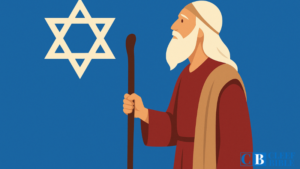











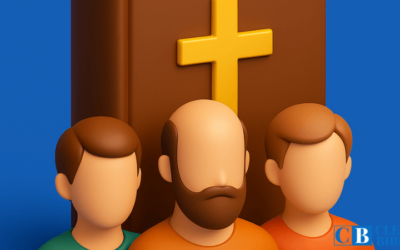
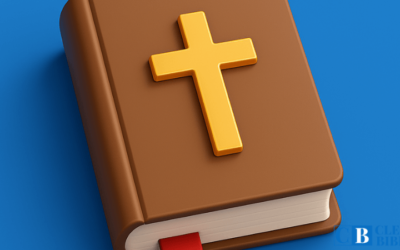








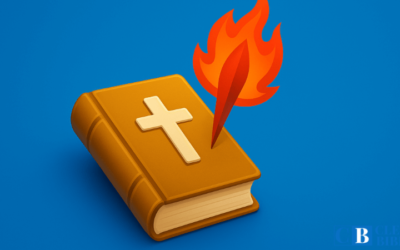
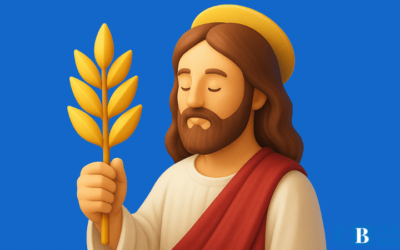
0 Comments